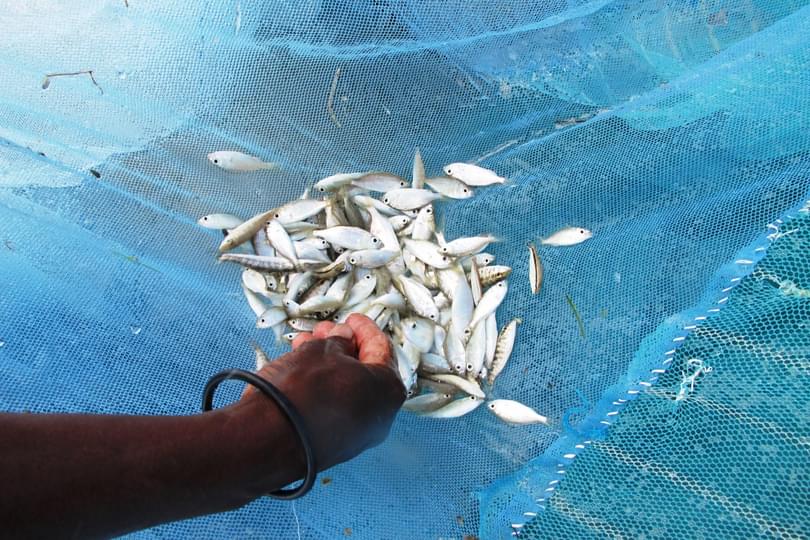
A new study published today reveals for the first time the global extent of the use of mosquito nets, designed to protect humans against malaria, as fishing nets and highlights the impact of this on both human health and the environment.
Published today in the journal PLOS ONE, this collaborative study between international conservation charity ZSL (Zoological Society of London), Oxford University and Imperial College London highlights the widespread nature of mosquito net fishing (MNF). This is a growing problem in developing tropical countries whereby mosquito nets, for the prevention of malaria, are being routinely used for fishing, posing threats for both fish populations, a critical food source for many people, and human health.
The study found evidence that this practice occurs to some extent across most of the world’s tropical latitudes, impacting a broad range of different marine and freshwater habitats and species.
Lead author Rebecca Short from ZSL’s Institute of Zoology said: “Recent decades have seen the broad distribution of free or subsidised mosquito nets, which has had a hugely important impact on reducing incidences of malaria in developing countries. While anecdotal evidence has long existed about these mosquito nets often being diverted into artisanal fishing, our study represents the first concerted attempt to gauge the scale and extent of this problem worldwide.” Short also expresses that further research into this matter is needed to determine the potential impacts.
Although MNF may be threatening fish stocks and the human populations that rely on them, the study suggests that it is often carried out by vulnerable fishers, providing a valuable food source for poor families. Therefore calling in to question whether simply criminalising MNF is an appropriate response.
Co-author Professor EJ Milner-Gulland from the Interdisciplinary Centre for Conservation Science, Oxford and Co-Director, Oxford Martin Programme on the Illegal Wildlife Trade, added: “We hope that this study will encourage closer cooperation between healthcare, international aid/development bodies and conservationists to develop collaborative solutions to a complex issue that is linked to wider issues of poverty and food shortages in these malaria-afflicted regions.”
The study makes a number of recommendations for policy priorities designed to mitigate against, and address the drivers of, MNF in the future. These include improving the distribution and disposal of mosquito nets in efforts to protect marine and freshwater biodiversity whilst conserving vital fish stocks.
Rebecca Short is scheduled to address The Alliance for Malaria Prevention (AMP) Annual Partner Meeting in Geneva in February 2018, regarding the findings of both this study and a recent cross-sectoral meeting supported by the Oxford Martin School, aimed at producing inter-disciplinary recommendations to policy makers on ways forward in tackling this complex problem.